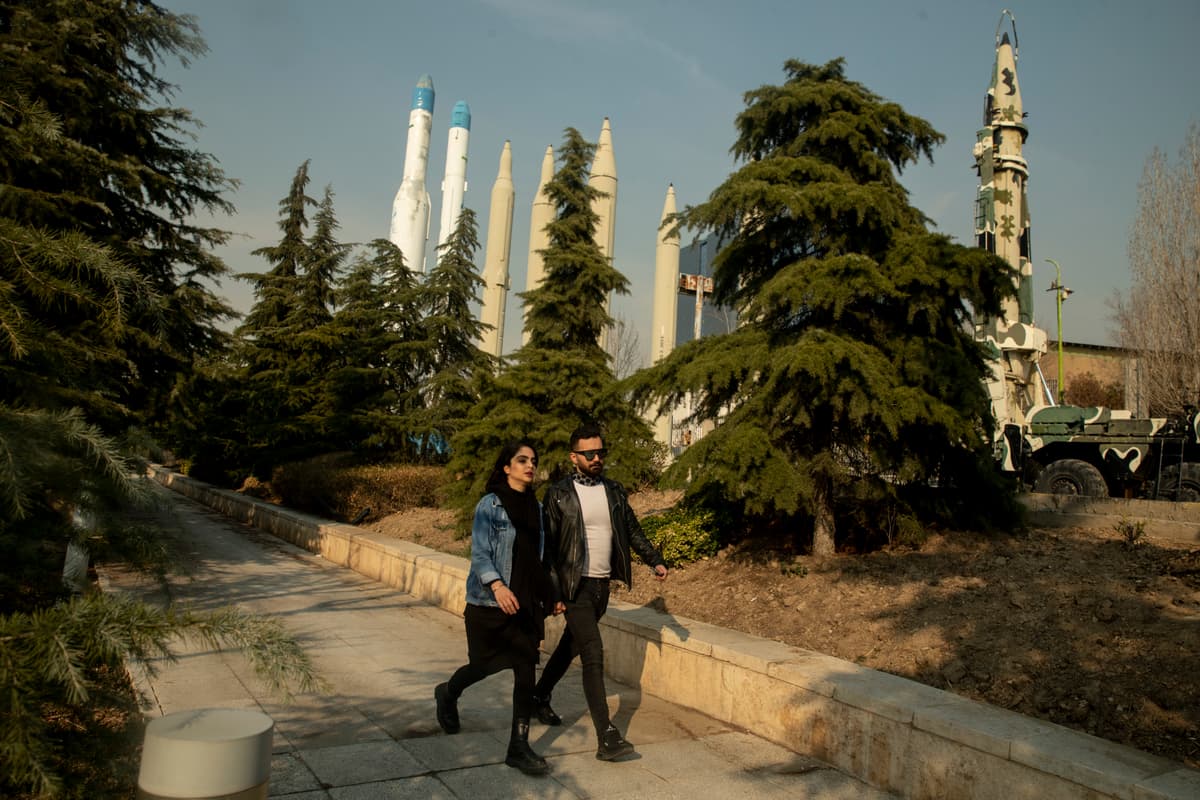The Disappearing Iranian A-Bomb
Now that Iran can produce a nuclear bomb within a matter of weeks, the threat has disappeared from the Biden-Harris administration’s agenda.

Remember when stopping Iran’s nuclear program was central to our national security? Well, the Islamic Republic is almost there, and now it seems we no longer care. A Cheshire cat’s smile couldn’t disappear faster than the Iranian A-bomb has from the Biden-Harris agenda. Tehran is taking notes. Some wonder if Iran’s policy now is fully to declare itself a nuclear armed state, or merely remain a threshold state. Either option is catastrophic.
So what to do? Next week the International Atomic Energy Agency’s board of directors is scheduled to meet at Vienna to discuss the nuclear watchdog inspectors’ latest report. As the Institute for Science and International Security sums up in that report, Iran now has enough weapons-grade uranium to produce nine bombs in one month, 12 in two months, 13 bombs in three months, 14 in four months, and 15 in five months.
In the deeply-dug nuclear installation at Fordow alone, the mullahs can produce enough fuel for four nuclear weapons in slightly less than two weeks, and six bombs in a month. “Iran has certainly made more real the danger of breakout,” the institute concludes. Yet what America and allies plan to do is, well — nothing. In the upcoming meeting, the Wall Street Journal reports, the IAEA board “is unlikely to take new steps against Tehran.”
That inaction is a retreat even from the board’s meeting, in June, when Britain, France, and Germany pushed a resolution of censure. America, reportedly, initially resisted the European plan. Only after realizing that the three countries were adamant to pass the resolution did Washington agree to it and vote in favor. Presuming no follow-through, the Islamic Republic shrugged off the censure. It made some noise in global forums, but in reality could care less.
America, or at least our slightly more persistent European allies, could have then moved to the next step. The IAEA report details a wholesale Iranian violation of its obligations under the 2015 nuclear deal, known as the Joint Comprehensive Plan of Action. Following the June censure, the next logical IAEA board’s motion would be to refer the matter to the United Nations Security Council and start implementing the “snap-back” option.
The UN council’s 2015 endorsement of the Jcpoa included that snap back move, which gives any party to the deal the right to unilaterally undo it, and automatically reinstate all prior global sanctions. That snap-back option, however, is set to expire by next October so time is short. Yet, America and the Europeans worship the Jcpoa above any other god. Undoing President Obama’s crowning diplomatic achievement is unpardonable heresy.
The 2015 deal was sold as bulwark against the Mideast’s most menacing development, an Iranian bomb. In reality, it also halted American and Israeli efforts to end Iran’s nuclear race by military or any other means. President Trump was widely panned for bolting the deal in 2018 and replacing it with “maximum pressure” policies. The mullahs threatened to amp-up enrichment, and a chorus of Jcpoa cheerleaders sang, “we told you so.”
Yet accelerated Iranian enrichment started in earnest only two years after America’s policy shift, in November 2020. The occasion was that year’s election victory of a man who, in President Biden, vowed to renew the Jcpoa. Throughout the Biden presidency, the Iranian regime led Washington’s hapless diplomats by the nose, dangling hopes of renewed negotiations, only to pull the rug out at the last minute. All along, they honed their nuke capabilities.
Now that the Mideast’s most destructive player is a flip of a switch away, America directs its attention instead to a narrow nine-mile dirt road on the Gaza-Egyptian border, the Philadelphi Corridor. Feature that once the ayatollahs go nuclear, Saudis, Emiratis, Turks, et al will follow suit. Not to worry, Jcpoa supporters say as they pin their hopes on Iran’s new “moderate” president, Masoud Pezeshkian, and his deputy, the wily veteran negotiator Javad Zarif.
Even Ayatollah Khamenei is saying that he might allow Mr. Pezeshkian to negotiate with the “enemy.” Vice President Harris is surrounded with true believers in Iranian diplomacy. So if elected she might stumble into the never-ending negotiation trap. For now, the incredibly shrinking topic that once topped America’s worst fears is off the radar. Which is why it isn’t hard to predict that soon a nuclear-armed Iran will be our biggest global headache.

